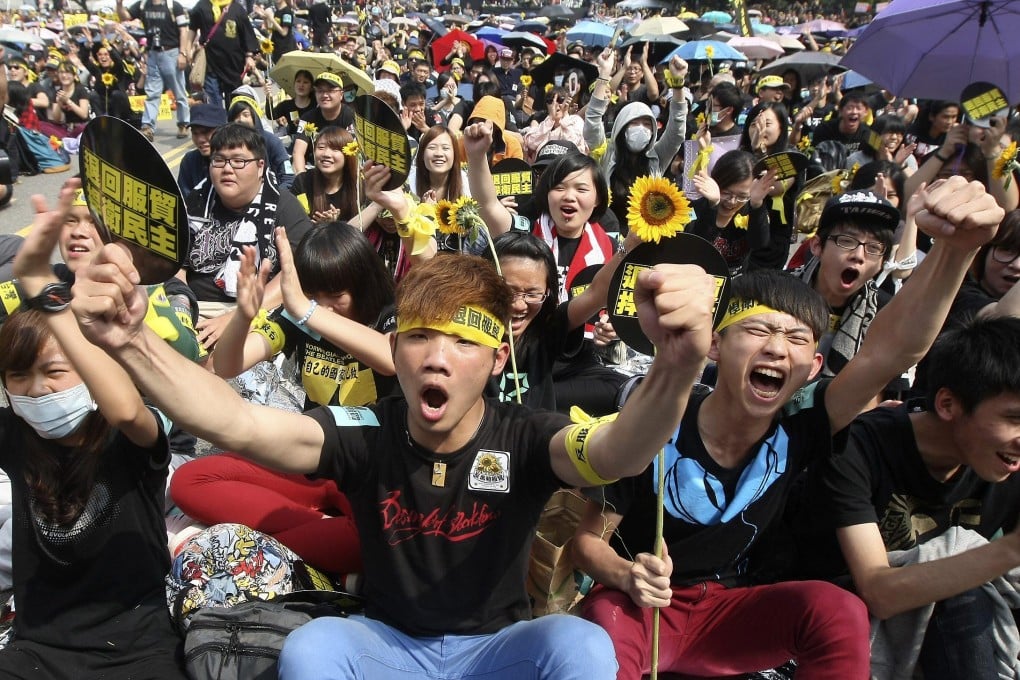10 years on, Taiwan’s Sunflower Movement has wilted but its legacy lingers on
- Independence-leaning DPP and parties that rose out of the 2014 protests are losing popularity, but youth increasingly drives the island’s politics
- A decade after the student-led action protesting a trade deal with Beijing, the notion of closer cross-strait ties no longer deters young voters

An alliance of six young progressive politicians – all part of the 2014 movement – calling themselves “The Generation” stood in the race for seats in the Legislative Yuan. Only two won in their districts.
Many young voters turned instead to the Taiwan People’s Party (TPP), led by unsuccessful presidential candidate Ko Wen-je – whose own political career was aided by the movement.
This was despite a shift in Ko’s political leanings, from the “pan-green” that denotes independence-leaning parties, towards the more Beijing-friendly stance of the “pan-blue” Kuomintang (KMT) by the time of his presidential run.

Ko’s party won a historic eight seats, replacing the pro-independence New Power Party (NPP) – formed in the wake of the Sunflower Movement – as the third most-represented party in the legislature.